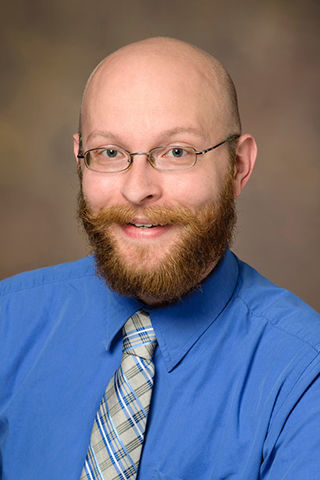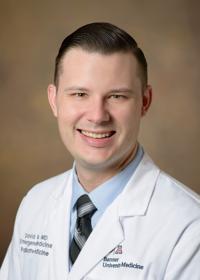Banner-University Medical Center Tucson has earned geriatric emergency department accreditation from the American College of Emergency Physicians.
The hospital’s emergency room at 1625 N. Campbell Ave. is the only one in Tucson with this distinction. There are 130 emergency rooms with geriatric accreditation nationwide, according to the organization of emergency medicine physicians in the United States.
On Feb. 12, Banner-UMC Tucson earned a Level 3 Bronze accreditation by identifying a health-care team that specializes in geriatric care.
The team will study traditional medications prescribed by doctors in the emergency room and come up with medications that are better for patients age 70 and older, said Dr. David Horn, an emergency medicine physician who will lead the team.
“We are creating a system in the emergency department that provides targeted care for older adults,” said Horn, who also is a clinical assistant professor at the University of Arizona’s department of emergency medicine. Horn has additional training in palliative medicine and specializes in providing supportive care to patients with serious illness.
Horn said his team will collect data on which traditional medications the emergency room physicians are prescribing, such as Benadryl and medicine for nausea, and “see if any of those medications can be replaced with other medications that would be safe for older adults.”
The data will be presented to emergency room doctors and nurses every quarter for all to study and see what are better or safer alternatives for older adults, said Horn.
He said the goal is for doctors to change their behavior in prescribing medications by showing them the “best evidence we have for medications used in older adults.”
“As a physician I get excited when someone looks at my field and tries to make it better,” said Horn. “It is helpful that there is some guidance to do a particular aspect (of medicine) with greater skill.”
Other team members are:
- Dr. Art Sanders, a geriatric emergency medicine specialist and a tenured professor at the UA department of emergency medicine;
Samantha Adamson, a registered nurse with geriatric
- emergency medicine training and a nursing supervisor;
- Pharmacist Chris Edwards, who will provide alternative medication recommendations to doctors for older adults;
- Dr. Mindy Fain, co-director of the UA Center on Aging, and chief of the UA division of geriatrics, general internal medicine and palliative medicine.
In 2018, Banner-UMC Tucson’s emergency room received 10,000 patients who were age 66 and older, said Horn.
The medication project becomes more important for aging patients because they tend to suffer more from confusion, drowsiness, dizziness, falls, nausea and vomiting, he said.
Certain medications might intensify these problems, especially delirium, where a patient develops confusion and suffers attention problems, in the hospital, Horn said.

Dr. Art Sanders
University of Arizona

Chris Edwards PharmD, University of Arizona
The project also will teach resident physicians how to perform medical exams that take into account the specific needs of seniors.
Doctors will question the older patients about mobility issues in the home and their safety.
“As older adults become more sick and more frail, they may need more support from family and friends. We will alert family. One of our jobs is when they need that support, we help them get that support,” said Horn, explaining that social workers will be brought in on the case to look at options for in-home care.
Older adults are visiting emergency rooms with greater frequency as Americans live longer, with 10,000 baby boomers turning 65 each day until 2030.
Aging patients in emergency rooms often suffer from multiple chronic conditions, have complex social challenges and take several medications.
Under the geriatric accreditation, the emergency room at all times must have mobility aids, such as canes, walkers and wheelchairs, and is required to have easy access to food and liquids for older patients.
Above and beyond the accreditation, said Horn, the emergency department has pocket talkers, which are handheld amplifiers to help patients who are hearing impaired.
Horn said he expects to begin working within two years on also getting Banner-University Medical Center South, 2800 E. Ajo Way, a geriatric emergency department accreditation.







